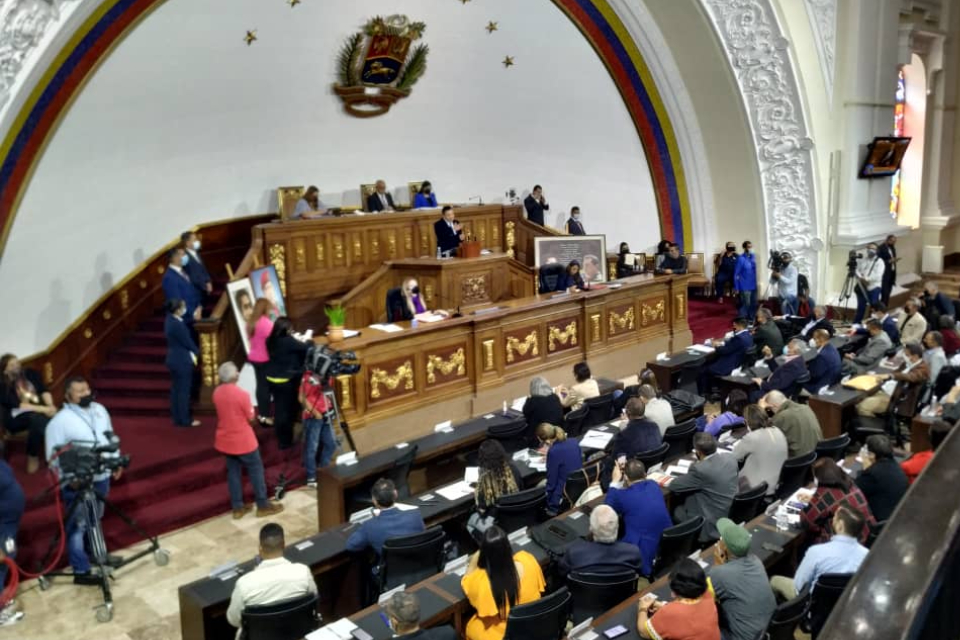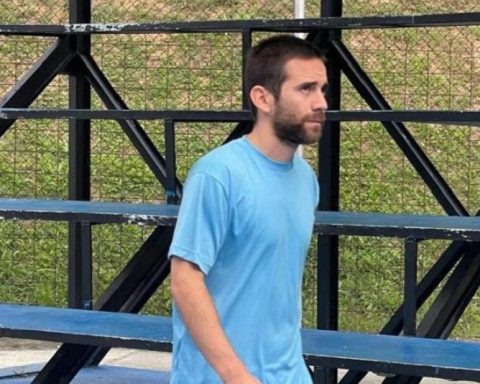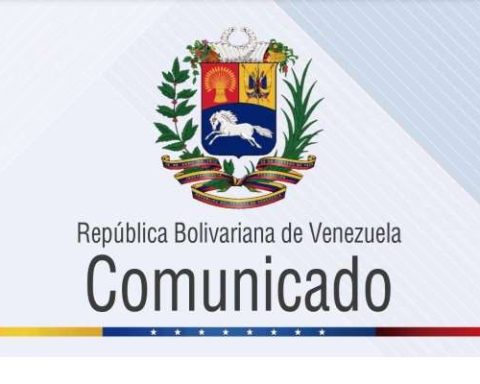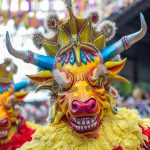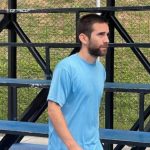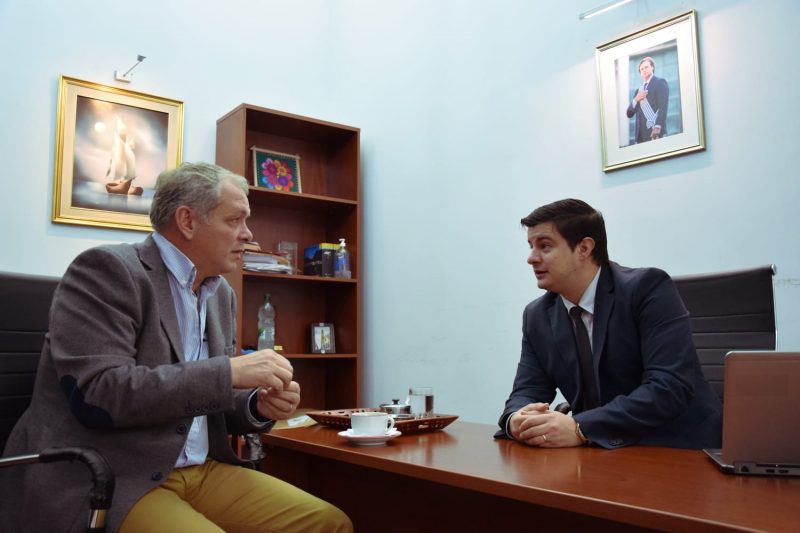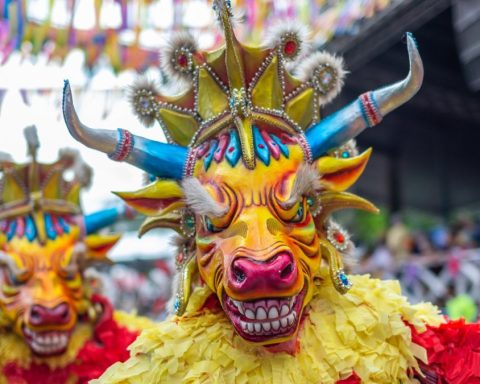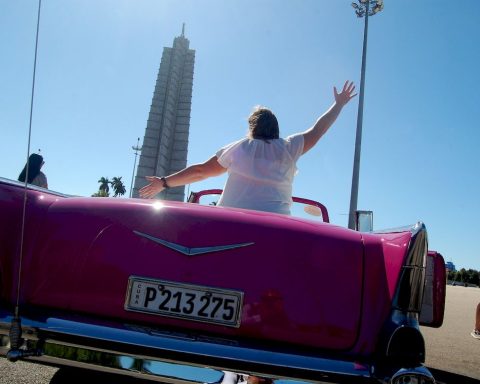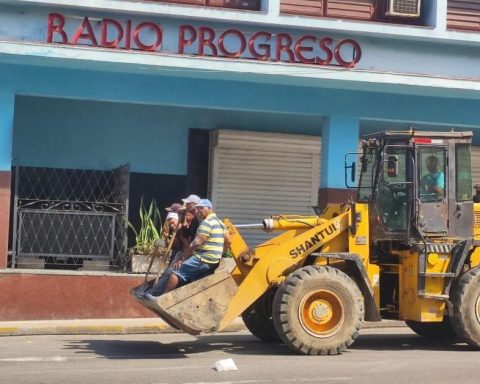The representative of the Maduro government before the UN, Samuel Moncada, reviewed the bibliographic production of United States officials. He spoke of the conspiracy theories against the Executive, including the failed attempt to enter humanitarian aid, the 2019 megapagón and the so-called “Operation Gideon.” The reiteration of these facts before the AN occurs in the midst of citizen demands for policies that improve their living conditions and while the LGBTI community waits for legislation to be passed in favor of their rights. Also on the waiting list is the Law for the Protection of Families, Maternity and Paternity, with which the rights of children and women would be modernized
While Venezuelans wait for legislation to improve their living conditions, the National Assembly (AN) that dominates the United Socialist Party of Venezuela (PSUV) devoted the entire ordinary session this week – which began an hour after the scheduled — to talk about the operations and “historical conspiracies” against President Nicolás Maduro.
The representative of Venezuela before the United Nations Organization (UN), Samuel Moncada, was this time the standard-bearer to recycle the stories that in the past have already been told by the president of that Parliament, Jorge Rodríguez.
The proclamation of Juan Guaidó as the president in charge of the country (2019), in a failed humanitarian aid attempt (February 2019), the megapagón (March 2019) and other events were exposed from the speakers’ gallery after 12:40 noon This Thursday, May 26.
* Read also: Maduro’s AN approves express laws silencing opponents
Moncada made a sequel to the speech of Maduro’s leadership, that it has been uphill to govern due to sanctions, and “mercenary actions”, an argument with which the Executive has spent years excusing itself for the catastrophe of public services, destruction of the industry oil industry, the crisis in public services and other aspects that have plunged Venezuela into a complex humanitarian emergency.
There was nothing new in Moncada’s participation. Once again they spoke of plans by the United States to seize Venezuelan oil, Colombia’s intentions to invade the nation and intentions to assassinate the ruler Nicolás Maduro.
The right to speak of the representative of the Maduro government before the UN was given in connection with the alleged confession of the Former US Secretary of Defense Mark Esper on the alleged plans between former US President Donald Trump and the president of the AN elected in 2015, Juan Guaidó.
“Everything has been part of a strategy of cruelty to kill us by hunger and disease,” said Moncada from the speaker’s gallery of the session chamber. According to the diplomat, the aim was to maintain that the citizenry “like rats locked in a cage, we would kill ourselves, for them to later come as saviors.”
He said that “literally” Venezuela is fighting its second “battle for independence.” He added that these have been the most serious “aggressions” in national history. In this sense, he pointed out that not even in 1902, when the country’s ports were blocked, was there such an aggression.
He added that the “aggressions” against the nation have been perpetrated in the midst of humanity’s worst pandemic in more than a hundred years, that of the coronavirus. He reminded Moncada that, since 2018, it was when they tried to “kill citizens with hunger and disease.” Since previous years, precariousness was installed in the homes of Venezuelans.
Moncada, during the exposition of the government’s already used thesis of the conspiracies that are allegedly the ones that prevent correct management, quoted former US Secretary of Security John Bolton and said that “the strongest sanctions that occurred after January 26, 2019, when he proclaimed himself (Guaidó) president.
Continuing the quote from Bolton, he said that the US conceptualized sanctions as “the massive use of economic power to advance our national interests.” This phrase, according to the official, reveals the intentions of the US to “take over” the country.
Also read: Tamara Herrera: Sanctions are an external excuse for what the Government does wrong
Moncada emphasized that at the end of 2018 Colombia, Brazil, Canada agreed that they would act together after Guaidó proclaimed himself «They expected that a coup would be unleashed later. The US action was to coordinate an international bloc and the total destruction of the country. Trump called for the planning of the coup, for Guaidó to declare his loyalty to the US and for the contracts with China to be repealed. An economic program was planned for the expansion of US companies in Venezuela,” she added.
In the string of events and stories that he recycled, Moncada spoke of the failed humanitarian aid attempt on February 23, 2019. He said, in this regard, that mercenaries had been prepared to enter the nation.
“That’s what Bolton says in his book,” he stresses. He continued his speech before the plenary: He spoke of the blackout in March of that same year and asserted that Bolton in his book alludes to the event —branded by the government as a “cyber attack”, although the system is analogous— in the line that says “When I saw the blackout I said: ‘here is a hand that seems to have taken things'”.
According to Moncada, air and sea attacks on ports were planned, a total economic blockade of the country, the arrest of Venezuelan oil tankers, attacks by US mercenaries from Colombia, covert operations, threats to the government placing a reward for their capture, sabotage of the vital structure (services ), financing of armed gangs in the capitals – although the government itself demonstrated its inefficiency in the so-called zones of the country, places where these criminal groups prevailed since before the sanctions -, cybernetic operations, psychological operations to divide the National Armed Forces ( fan), among others. “We have suffered from coercive measures since 2019,” he said.
In the session, PSUV deputy Pedro Infante asked if the arrest in Cape Verde of Colombian businessman Alex Saab, accused of money laundering, was part of the pressure against the government after the so-called “Operation Gideon of 2020” failed.
Moncada asserted on this issue, already hackneyed in the debates in Parliament, that this would indeed be a form of pressure, since Saab for the government was a diplomatic official at his service.
The opposition bench in the AN 2020 did not refute anything. On the contrary, absolutely all the deputies of this sector recognized the investigation and the “chronology of the facts” exposed by Moncada. Timoteo Zambrano, president of the Foreign Policy commission, was one of them.
However, Zambrano recalled that this sector of the Venezuelan opposition was the interlocutor “and continues to be the interlocutor of the country that wanted to invade us and that today tries to negotiate from government to country.” To this Jorge Rodríguez President of the Parliament said that there were issues that it was necessary to reserve.
Zambrano questioned whether “that group of extremists” — a term used by the government — continues in any negotiation, because they do not represent the reason that gave it life at the time, he said.
The pending list continues in the AN
The plans against Venezuela are not a new issue. In the session of May 17 this was discussed in plenary. The discussion was held despite requests from the opposition caucus to defer the point.
The opposition deputy José Brito asked to postpone the discussion of the point due to the information about the resumption of talks between the government of Nicolás Maduro and the opposition sector led by Juan Guaidó, who is also recognized by the international community as the president in charge from the country.
The information, initially disclosed by Reuterswere announced at the same time that the administration of President Joe Biden relaxed some sanctions.
«The person who is pointed out today is the one who is going to set the conditions. We propose to defer the debate because we cannot express opinions on a fact that we are onlookers on, “exclaimed the parliamentarian, whose request was denied.
The deputy for the PSUV Pedro Carreño asked not to modify the agenda. He called on the opposition to settle their internal affairs.
Ricardo González, also from the PSUV, recycled the government’s conspiracy theories to feed the debate: among them the so-called “Operation Gideon” and until the early morning of April 30, 2019.
Grecia Colmenares, from the same caucus, questioned the sovereignty of the opposition sectors that have requested sanctions for the nation. Deputy José Brito left the session chamber and did not use his right to speak.
While Maduro’s AN spent more than two hours repeating the conspiracy theories, there are reports indicating that, for example the increase in the minimum wage maintained inequality and brought an administrative disorder to the country, while pollution worsens the situation of Lake Maracaibo and harms tourism and while millions of dollars are reported lost to the country due to the violence generated in productive areas.
There are important laws that have not yet been sanctioned and that are of the utmost importance for the country, one of them, for example, is the Guardianship Law project, which was approved in the first discussion in April. The two hours talking about the historical conspiracies took place in the midst of complaints that the AN has downplayed human rights issues of the LGBTI community.
The reform of the Law for the Protection of Families, Maternity and Paternity is still pending, with which they supposedly seek to modernize and expand the rights of children and women, among others.
Post Views:
155
